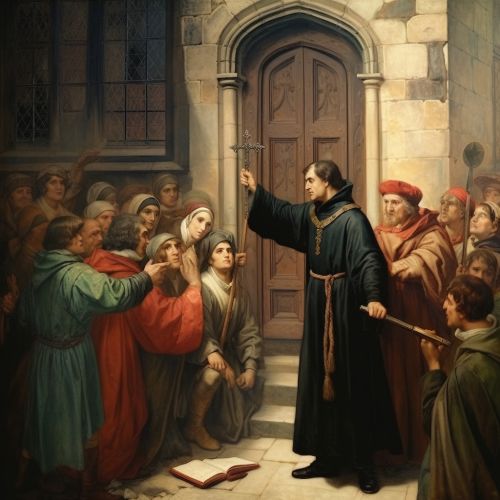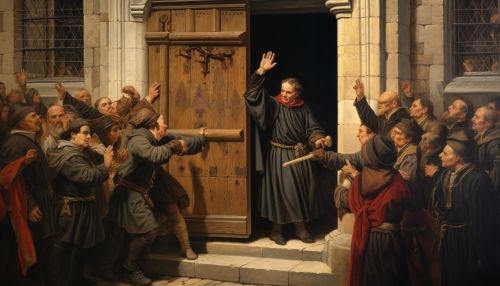Reformation
Origins of the Reformation
The Reformation was a major shift in the Christian world, originating in the early 16th century. It was initiated by Martin Luther, a German monk and professor of theology, who challenged the authority of the Roman Catholic Church by posting his Ninety-Five Theses in 1517.


The Reformation was not a singular event, but rather a series of events and movements that spanned over a century. These movements were driven by various factors, including political, economic, and social changes, as well as theological disputes and the rise of humanism.
Theological Disputes
The theological disputes that sparked the Reformation revolved around issues such as the authority of the Pope, the nature of salvation, and the role of the sacraments. Luther's Ninety-Five Theses, for instance, critiqued the Church's practice of selling indulgences, which were pardons for sins that could be purchased with money.
Spread of the Reformation
The Reformation quickly spread throughout Europe, thanks in part to the invention of the printing press. This allowed for the mass production and distribution of religious texts, including Luther's theses and translations of the Bible.
Impact of the Reformation
The Reformation had a profound impact on the religious, political, and social landscape of Europe. It led to the creation of Protestant churches, the fragmentation of the Catholic Church, and the religious wars of the 16th and 17th centuries.
Legacy of the Reformation
The legacy of the Reformation is still felt today, with the various Protestant denominations that emerged from it continuing to shape the religious landscape of the world.
